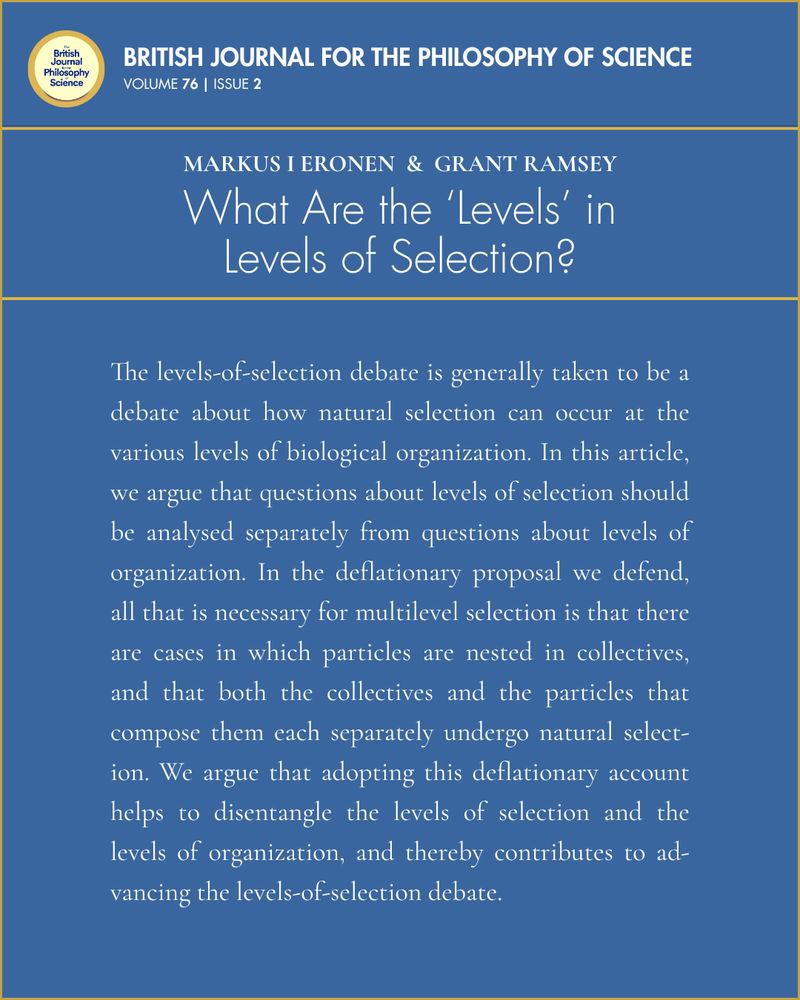Markus Ilkka Eronen
@mieronen.bsky.social
1.3K followers
360 following
9 posts
Philosopher of science. Associate professor, RUG. Associate editor, Theory & Psychology. Myös runoilija.
markuseronen.com
https://www.rug.nl/staff/m.i.eronen/research
Posts
Media
Videos
Starter Packs
Markus Ilkka Eronen
@mieronen.bsky.social
· Jul 12
Markus Ilkka Eronen
@mieronen.bsky.social
· Jul 12
Markus Ilkka Eronen
@mieronen.bsky.social
· Jul 12

(PDF) On worms, mirror neurons and explaining human behavior
PDF | A key challenge for psychological theorizing is: At what level(s) should we look for the best explanations and predictions of human behavior? The... | Find, read and cite all the research you ne...
www.researchgate.net
Reposted by Markus Ilkka Eronen
Reposted by Markus Ilkka Eronen
PsyArXivBot
@psyarxivbot.bsky.social
· Jan 23
Reposted by Markus Ilkka Eronen
Reposted by Markus Ilkka Eronen
Markus Ilkka Eronen
@mieronen.bsky.social
· Jan 11
Markus Ilkka Eronen
@mieronen.bsky.social
· Jan 11
Markus Ilkka Eronen
@mieronen.bsky.social
· Jan 11
Markus Ilkka Eronen
@mieronen.bsky.social
· Jan 11
Reposted by Markus Ilkka Eronen
Markus Ilkka Eronen
@mieronen.bsky.social
· Nov 27
Reposted by Markus Ilkka Eronen
Reposted by Markus Ilkka Eronen
Reposted by Markus Ilkka Eronen






